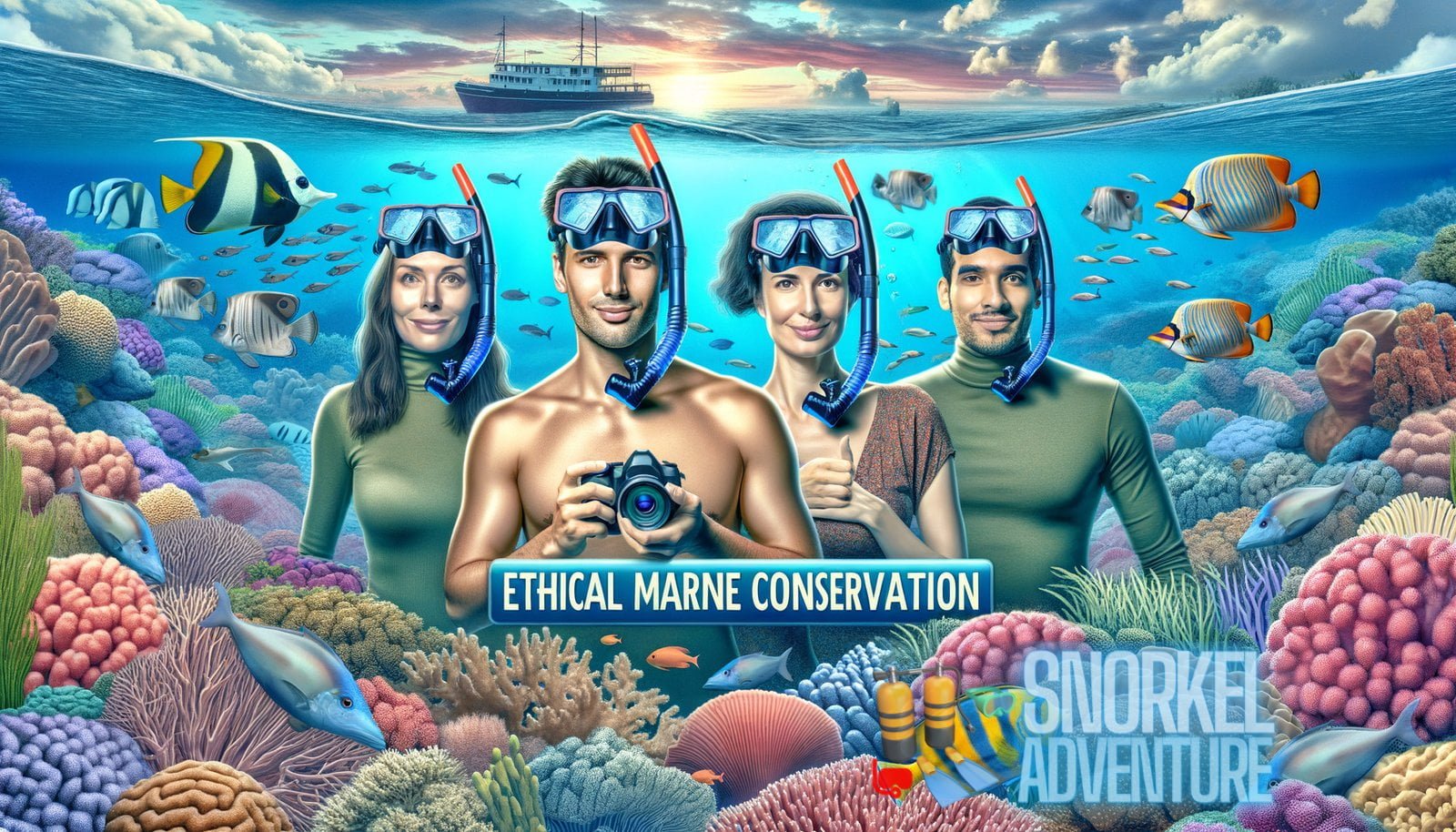Preserving Marine Ecosystems: Discovering the Hidden Powers of Sustainable Snorkeling
Marine ecosystems are incredibly diverse and important for the health of our planet. They provide food, regulate climate, offer economic opportunities, and support countless species. Protecting and preserving these ecosystems is of utmost importance, and one way to do so is through sustainable snorkeling. Eco snorkeling allows us to explore the wonders of the underwater world while minimizing our impact on fragile marine environments. In this article, we will delve into the world of sustainable snorkeling, its benefits, and how we can contribute to the conservation of marine ecosystems.
The Importance of Marine Ecosystems
Marine ecosystems cover more than 70% of the Earth’s surface, and they play a crucial role in maintaining the balance of our planet. Here are some key reasons why marine ecosystems are so important:
- Marine ecosystems produce over half of the world’s oxygen, making them vital for the survival of all living organisms.
- They act as carbon sinks, sequestering carbon dioxide and helping to mitigate climate change.
- Marine ecosystems are home to a wide variety of species, many of which are yet to be discovered. They provide habitat, shelter, and food for countless organisms.
- Healthy marine ecosystems support the fishing industry, providing livelihoods for millions of people around the world.
- They provide opportunities for recreation, tourism, and education, allowing people to connect with nature and learn about the wonders of the underwater world.
The Threats to Marine Ecosystems
Despite their importance, marine ecosystems are under threat from various human activities. Pollution, overfishing, habitat destruction, and climate change are some of the major threats. These activities not only affect the biodiversity of marine ecosystems but also have far-reaching consequences for the entire planet. It is imperative that we take action to protect and preserve these fragile environments.
What Is Sustainable Snorkeling?
Sustainable snorkeling, also known as eco snorkeling, is a way of exploring the underwater world while minimizing our impact on marine ecosystems. It involves adopting environmentally-friendly practices and techniques that aim to preserve and protect the delicate balance of underwater life. By snorkeling responsibly, we can enjoy the beauty of marine ecosystems while ensuring their long-term survival.
The Benefits of Sustainable Snorkeling
Sustainable snorkeling offers a range of benefits for both snorkelers and marine ecosystems. Let’s explore some of the key advantages:
- Minimal Impact: Sustainable snorkeling practices minimize damage to marine ecosystems, ensuring that their delicate balance is preserved. By avoiding contact with coral reefs and other fragile organisms, snorkelers can protect these habitats and prevent irreparable harm.
- Educational Opportunities: Sustainable snorkeling provides an excellent opportunity to learn about marine life and ecosystems. By observing and studying underwater habitats, snorkelers can gain knowledge about the incredible diversity and interconnectedness of marine organisms.
- Enhanced Experience: By snorkeling responsibly, we can experience the true beauty of marine ecosystems. The vibrant colors, diverse species, and intricate ecosystems come to life when we respect and protect them.
- Positive Impact: Sustainable snorkeling has the potential to make a positive impact on marine ecosystems. By spreading awareness and adopting responsible practices, snorkelers can inspire others to follow suit and contribute to the conservation of marine environments.

Practicing Sustainable Snorkeling Techniques
To practice sustainable snorkeling, it is essential to adopt certain techniques that minimize our impact on marine ecosystems. Here are some tips to snorkel responsibly:
- Select Suitable Locations: Choose snorkeling destinations that are known for their commitment to marine conservation. These locations often have guidelines in place to protect fragile ecosystems and educate visitors about sustainable practices.
- Stay in Designated Areas: Stick to marked snorkeling areas to avoid damaging coral reefs or disturbing marine life.
- Do Not Touch: Resist the temptation to touch or handle marine organisms, including coral reefs. Touching can harm these fragile organisms or introduce foreign substances that disrupt their natural balance.
- Use Reef-Safe Sunscreen: Many conventional sunscreens contain chemicals that are harmful to marine life. Opt for reef-safe sunscreens that do not contain oxybenzone or octinoxate, which have been shown to cause coral bleaching.
- Dispose of Waste Properly: Carry a reusable water bottle and avoid single-use plastics. Dispose of any waste in designated bins on land to prevent it from ending up in the ocean.
- Respect Wildlife: Maintain a safe distance from marine animals and observe them without disturbing their natural behavior. Do not attempt to feed or touch them.
- Practice Buoyancy Control: Mastering buoyancy control helps snorkelers avoid accidental contact with the seafloor or coral reefs, reducing the risk of damage.
For further information about sustainable snorkeling techniques, check out this article on sustainable snorkeling.
Sustainable Snorkeling Tour Operators
One of the best ways to ensure a sustainable snorkeling experience is to choose tour operators that prioritize marine conservation. These operators adhere to strict guidelines and provide educational opportunities for snorkelers. They often collaborate with local communities, researchers, and conservation organizations to support marine conservation efforts. Some renowned sustainable snorkeling tour operators include:
- Green Fins: Green Fins is an international program that works with the diving and snorkeling industry to reduce their environmental impact. They provide a comprehensive set of guidelines and standards that snorkel operators can follow to promote responsible tourism.
- REEF CHECK: REEF CHECK is a non-profit organization that trains volunteers to monitor and assess the health of coral reefs. They work with businesses around the world and encourage them to adopt sustainable practices.
- Coral Restoration Foundation: The Coral Restoration Foundation is dedicated to restoring coral reefs through active reef restoration techniques. Their efforts help to create healthy coral reefs that support marine life.
Conclusion
Preserving marine ecosystems is vital for the health of our planet and the survival of countless species. Sustainable snorkeling provides us with an opportunity to explore the wonders of the underwater world while minimizing our impact on fragile marine environments. By adopting responsible snorkeling practices and choosing sustainable tour operators, we can contribute to the conservation of marine ecosystems and ensure their long-term survival.
For more information on sustainable snorkeling, visit our detailed article here.


